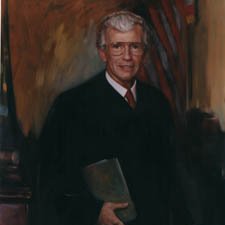And we’ll show you two ways to help. Together, we can be a voice for change and protect Michigan’s land, air, water, public health, and democracy.
This case examined whether an insurance company had to defend the City of Clare against a lawsuit arising out of its operation of a pollution-leaking landfill. The insurance contract stated that it would only need to defend the city if the pollution was “sudden and accidental.” The majority opinion determined that since the city had notice that it might have a leak, the pollution discharge could not be considered “sudden and accidental.” The dissenting opinion would have returned the case to the trial court to determine whether the release was sudden and accidental, as findings of fact are not generally determined on appeal. The Court’s ruling in this case determined who would pay for the damage caused by the pollution, but the underlying facts highlight the risks to groundwater posed by an improperly constructed and maintained landfill.
The City of Clare had a leaky and unlicensed landfill that contaminated wells in Hatton Township. Hatton Township sued the City, and the City asked its insurance companies to defend it in the lawsuit. The insurance companies’ policies provided that they would only cover “sudden or accidental” releases of pollution. The Court decided that the City must have expected that the landfill would cause pollution because the Michigan Department of Natural Resources had notified the City about problems with the landfill several times between 1980 and when the suit was filed in 1986. The Court therefore held that the release was not “sudden or accidental,” and thus that the insurance companies did not have to help the City.
The City of Clare operated a landfill without a license between 1980 and 1986, and failed to monitor the landfill to see if pollution was leaking out. The Michigan Department of Natural Resources (DNR) told the City several times that the landfill was a problem, and refused to give it a license, even though the DNR itself occasionally disposed of its trash in the landfill. In June 1986, the DNR discovered that the landfill had contaminated nearby surface waters. One month later, Hatton Township sued the City because two residential wells had been contaminated by the leaky landfill. Hatton Township claimed that the City had violated the Solid Waste Management Act and the Michigan Environmental Protection Act by operating a leaky landfill.
The City of Clare called on its insurance companies to defend it and help pay for the contamination, and the insurance companies said no. The insurance policies only covered “sudden and accidental” pollution, so the insurance companies would only have to pay if the leaks in the landfill were “sudden and accidental.” The insurance companies went to court to get a declaratory judgment that that they would not have to pay for the damage from the leaky landfill. The trial court decided that the insurance companies had to defend in the lawsuit against Hatton Township.
Was the release of pollutants from the City of Clare’s landfill “sudden and accidental” and therefore covered by the City’s insurance policies?
The Court (Justice Mallett joined by Justices Riley, Brickley, Boyle, and Griffin) held that the City of Clare should have expected that the landfill was leaking, because they did not have a license from the Department of Natural Resources, and the Department had warned them for years that the landfill was not safe. Therefore, the release of pollutants was not “sudden and accidental,” and the contamination was not covered by the insurance policies.
Justice Levin, joined by Justice Cavanagh, wrote a dissenting opinion that maintained the Court should have allowed a lower court to decide if the release was “sudden and accidental.” The dissenting justices thought that it was inappropriate for the Court to hold that the pollution was not “sudden” merely because the DNR had warned the City about problems with the landfill.





